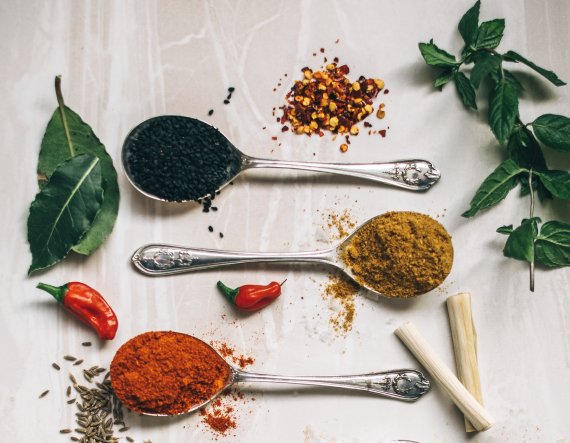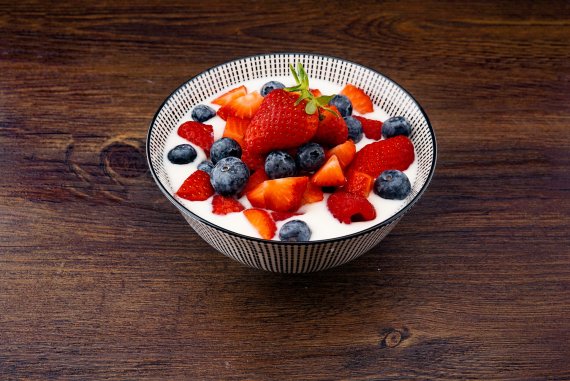On average, people eat around 2,000 kilocalories a day. That's 14,000 a week and 5,110,000 a year. At the same time, he or she drinks at best at least 2 liters a day, making 14 liters a week and 5,110 liters a year. That's quite a lot!
With every bite and sip, the body has to work and must eliminate the leftovers in the end. To avoid diseases, the quality and the composition of the food are the top priority.
- Eat lots of fruits and vegetables!
- Eat fresh herbs!
- Set on hot spices!
- Avoid industrial sugar!
- Drink enough liquid!
As soon as it gets cold outside, eating habits inevitably change. People adapt to the external conditions, need heartier meals and put on some winter fat. This is completely normal and, from an evolutionary point of view, also normal.
Today, we rarely freeze in winter, but man's adaptation to the changed conditions is slower than the developments that drive him.
In the past, people followed intuition and what was on offer, but today there is too much on offer and intuition is often suppressed by stress, lack of time and a lack of body awareness. However, the so-called "somatic intelligence" would be a good clue to ideally supply the body with the nutrients it needs.

Fruits and especially vegetables contain many vitamins, minerals and antioxidants. The natural interaction of the ingredients makes a natural product more valuable than a vitamin pill. If you pay attention to a gentle preparation, many micronutrients can be absorbed, which strengthen your immune system and make you more resistant to viruses. Regional products are usually of higher quality and contain more nutrients. The rule "5 a day", so three pieces of vegetables and two pieces of fruit, you should meet at least, better a little more of it. A green smoothie or a freshly squeezed juice in the morning form an ideal basis. A piece of fruit as a snack, a mixed side salad at lunch and steamed vegetables in the evening form an all-round successful vitamin day.

Herbs contain a large amount of micronutrients and antioxidants. Especially in rosemary, thyme, basil contain a lot of inflammation-reducing substances. Fresh, they are always of higher quality than dried. They help to fight off infections and also after the outbreak of a cold, to survive it better.
Season your food more strongly from now on and put a few hardy herbs on your windowsill during the cold season. How about baked potatoes with herb curd, for example? This not only tastes delicious, but also provides a large portion of fresh herbs.

Spices are said to have many positive properties, such as an antibacterial, anti-inflammatory and analgesic effect. They can stimulate the metabolism and thus strengthen the body in general. Particularly good for this are ginger, pepper, cayenne pepper and turmeric, but also cinnamon, cocoa and cardamom. Use spices more generously from now on or prepare a spiced cocoa of cocoa, cinnamon and some chili with hot milk and honey. Also ideal after a workout or after a cold winter walk.

Processed sugar in particular, as we find it in numerous industrially produced foods, increases the blood sugar level very sharply in a short time, and a drop in the value follows very quickly. This leads to regular hunger and an altered energy metabolism. Moreover, there is nothing in white sugar except calories. People also like to talk about "empty calories". Therefore, try to reduce sugar consumption and rather reach for healthy snacks, such as fresh fruit, homemade muesli or fruit yogurt. Then you can determine the sweetness yourself.

Immediately after birth, the human body consists of about 80% water, and the adult human body usually consists of about 60% Already a fluid deficiency of 2% of body weight has a negative effect on performance. Drinking 1.5-2.5 liters regularly throughout the day is recommended.
Especially in winter, the mucous membranes should be well moistened. Therefore, drink mineral water, unsweetened teas or even flavored water with orange slices, ginger or lemon. Avoid sweetened beverages such as cola or juices, because they provide additional calories and affect the insulin level: It fluctuates and that makes you ravenous.
 Know-HowThe 11 Best TRX Exercises
Know-HowThe 11 Best TRX Exercises
- ISPO awards
- Mountain sports
- Bike
- Design
- Retail
- Fitness
- Health
- ISPO Job Market
- ISPO Munich
- ISPO Shanghai
- Running
- Brands
- Sustainability
- Olympia
- OutDoor
- Promotion
- Sports Business
- ISPO Textrends
- Triathlon
- Water sports
- Winter sports
- eSports
- SportsTech
- OutDoor by ISPO
- Heroes
- Transformation
- Sport Fashion
- Urban Culture
- Challenges of a CEO
- Trade fairs
- Sports
- Find the Balance
- Product reviews
- Newsletter Exclusive Area
- Magazine




